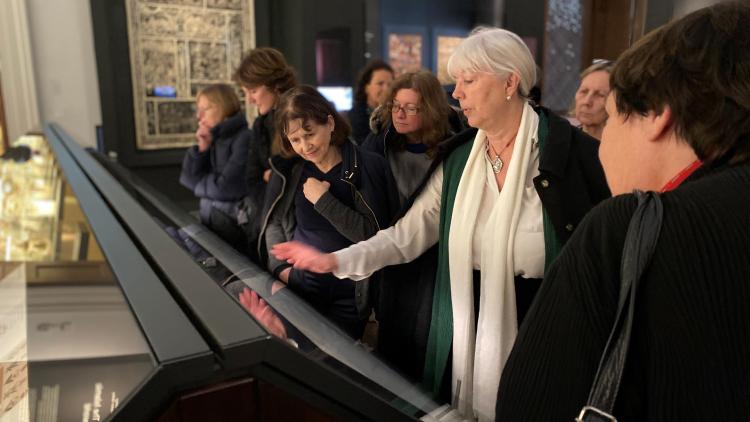Rule of Law in Thailand


Background
Thailand and the Rule of Law (“Lak Nititham”)
This project, led by Professor Carol Tan, is concerned with the application of the ‘rule of law’ to Thailand and it seeks to engage academically with rule of law issues at a crucial time. The recent trend towards democratic constitutionalism has been interrupted by absolute rule and the protection of human rights under the law has been suspended.
Viewed from a historical standpoint the concept of rule of law might refer simply to the emergence of the idea of limited government. Post Magna Carta the ‘[Rule of law] is a widely used term for a state where the government is bound by the law in its dealings with the citizens; its power is in other words limited by the individual rights of the people.’
In the context of modern constitutions this idea has been understood in a number of ways. On the one hand, a separation of powers is nearly always incorporated as part of the overall constitutional design. While, on the other, a concept of the rule of law will be regarded as fundamental to the uniform application of the law; an assumption that all citizens will be treated equally under the law; and the general absence of arbitrary power by the executive organs of the state. At the same time in contemporary constitutions the rule of law has come to be associated with having a series of defendable constitutional rights.
It might be argued that such rights are evolving into a universalist concept, reflecting international norms associated with the Universal Declaration of Human Rights, the International Covenant on Economic, Social and Cultural Rights and the International Covenant on Civil and Political Rights and so on. But in Thailand there has been an ongoing struggle between authoritarianism and democratization. Is there really a valid case for Asian values or an exceptional Thai way of doing things constitutionally and legally as an alternative to a general trend towards rule of law values, or is the canvassing of such an alternative merely a way of avoiding difficult issues associated with the universal enforcement of law in an unequal society?
Aims
The project aims to:
- Enhance SOAS knowledge and capacity in the study and research of East and Southeast Asian Laws with a focus on Thai Law
- Engage and network with scholars, students, professionals and other stakeholders outside of SOAS who share interests on Thailand
- Engage the general public to understand and debate the role and existence of ‘rule of law’ in society
Some of the issues which will be addressed as part of this project include:
Reviewing mechanisms for the enforcement of constitutional and legal rights; the rule of law, freedom of speech and the reform of the Lèse-majesté law; rule of law and the incorporation of social, economic and trade union rights; representation of the rule of law in culture such as film, literature and media; examining notable court cases, legal or political procedures and other case studies in which the rule of law is mentioned, applied, contested or possibly absent; and examining the rule of law from a comparative perspective: comparing the constitutional and legal approaches as well as political and cultural experience in countries such as Indonesia, Malaysia, China, and Japan.
Summaries of works on Thai law
The project welcomes submissions of executive summaries in English of papers or works on Thai law published in Thai language.
Activities
Political Learning and Military Rule in Thailand
Thailand’s ruling military junta, which calls itself the National Council for Peace and Order (NCPO), has been in power since a coup d’etat in May 2014. In this talk, Panuwat Panduprasert argues that many aspects of the junta’s behaviour can be explained in terms of political learning. Specifically, it has learned from the perceived mistakes of the previous coup in 2006 which failed to eradicate the political influence of Thaksin Shinawatra and thus was regarded as a ‘wasted opportunity’.
Thailand's Crisis: Finding a Path to Constitutionalism (6 December 2017)
Thailand’s constitutional history is tumultuous, but involves the cycling among a relatively small number of models. The watershed constitution-making experience of 1997 has continued to influence the country long after that constitution’s demise. However, the 2017 document marks a significant break in some ways, away from what might be called a “Madisonian” faith in institutions, and toward a model of paternalistic moralism. Tom Ginsburg examines factors that have contributed to the present situation, and a narrow basis for optimism, if any. At the same, military regimes elsewhere often promulgate constitutions at the outset of their interventions in politics. Sumit Bisarya offers comparative analysis of military constitutions and ask whether they tell us about commonalities and idiosyncrasies of the 2017 constitution of Thailand.
“Thainess” as a Political Instrument (17 November 2017)
The notion of “Thainess” has raised questions among Thai political observers, in terms of whether there is such thing as a so-called “Thainess”, and whether the term undermines democratic progress in Thailand. This seminar will explore the cultural challenges existing within Thai society, and how these cultural elements have been used by the military to strengthen the so-called “Thai-style democracy,” characterised by limited freedom and liberty.
Violence and Grievance: Thailand's Deep South (10 October 2017)
This seminar provides updated insights into tensions and violence in some of the most southerly provinces in Thailand. The speakers will explore key factors such as ethnicity, religion, culture, economic development as well as politics following the military coup in 2014 and how these factors and the rule of law affect the prospects for return to peace and stability in the region.
ASEASUK Conference: Thailand after the Referendum (16 September 2016)
In the past decade, Thailand has seen several regime and constitutional changes which have occurred against a backdrop of continued tension between democracy and authoritarianism. The highly regarded 1997 Constitution came to its formal end following the military coup d’etat in September 2006. Ten years on, the country has once again fallen under military rule. The junta promised a return to civilian rule under a new constitution, which was approved by a so-called referendum in August.
Against this background and recent developments, this panel brings together distinguished experts to discuss issues concerning law, politics, and history in Thailand to debate the key turning points of the past and the future of democracy in Thailand after the referendum.
PhD work
The influence of foreign legal philosophies on Sarit Thanarat’s Thai-style democracy and today’s challenge (28 October 2016)
Presenter: Rawin Leelapatana (Ph.D. candidate at University of Bristol Law School)
The presentation aims to explore the extent to which the transplantation of foreign legal philosophies influences Field Marshal Sarit Thanarat’s despotic paternalism (or the Thai-style democracy (‘TSD’)) and its challenges today. The transplantations of John Austin’s command theory of law and Carl Schmitt’s constitutional theory into Thailand in the 20th century, the author initially argues, significantly foster the perspective that public law is predominantly an instrument for imposing ‘top-down’ state power and even a despotic military rule. Interestingly, at present, a coup d’état together with the implementation of the TSD are still useful tools for the rightist-conservatives to react against the progressive movements. In 2014, General Prayuth Chan-Ocha staged a coup d’état ousting the civilian government led by Yingluck Shinawatra and abolishing parliamentary democracy, which was criticised for inviting perpetual bargaining on equal footing among different political interests without any last word, thus threatening the country’s unity and stability. However, Prayuth, unlike Sarit, faces a greater challenge especially from the mass/civil society. Owing to this changing circumstance, the Thai public law therefore has to increasingly embrace Jürgen Habermas’s view that law is a bridge between the state’s monopoly on power and the public sphere.
Thailand's Buddhism in Constitutions (29 November 2016)
Presenter: Khemthong Tonsakulrungruang (PhD candidate at University of Bristol Law School)
Thailand is known for its association with Buddhism. Its constitutional system, while remaining secular, recognises the superior status of Buddhism. This special relationship leads to a question of what Thailand has gained from this endorsement, and more importantly, another question of how much this relationship has cost the country. Recent incidents indicate that Buddhism might no longer be the source of social cohesion the Thai state often claimed. As Thailand becomes more pluralistic, the special status of Buddhism may work in the opposite direction. This struggle becomes more critical when Thailand is witnessing waning liberal democracy and growing conservative nationalism. This presentation will discuss how Buddhism shapes Thailand’s constitutional law and its effect on individuals and national politics.
Further information
Contacts
- Project Director: Professor Carol Tan
- Project Coordinator: Verapat Pariyawong
Social media
News and activities of the project including videos of past events can be found on the project's Facebook.

